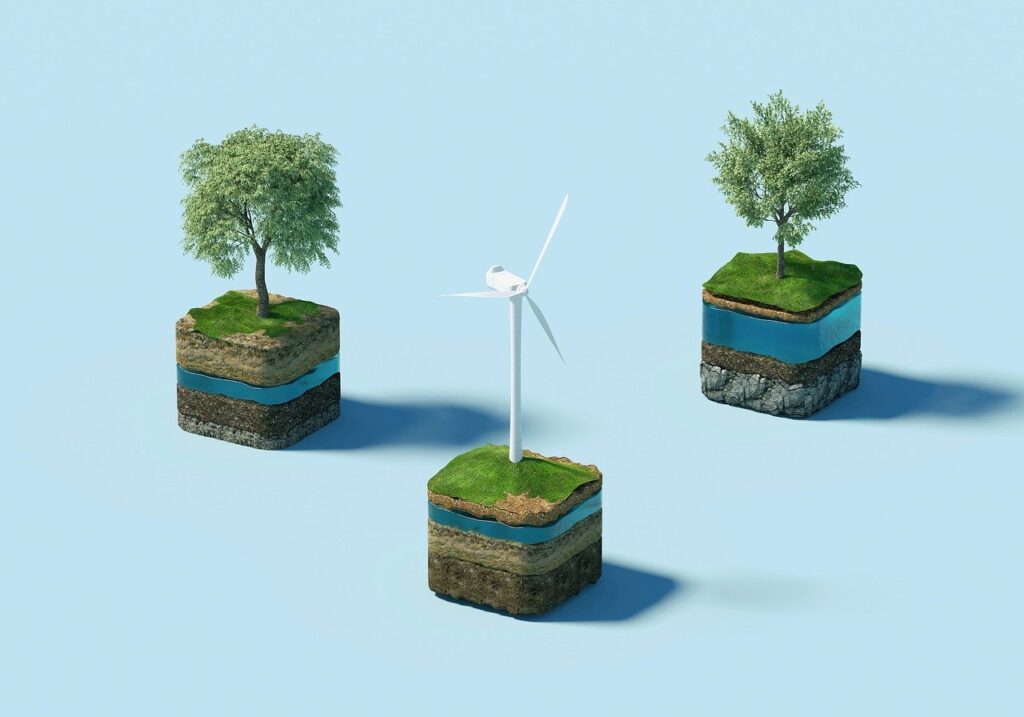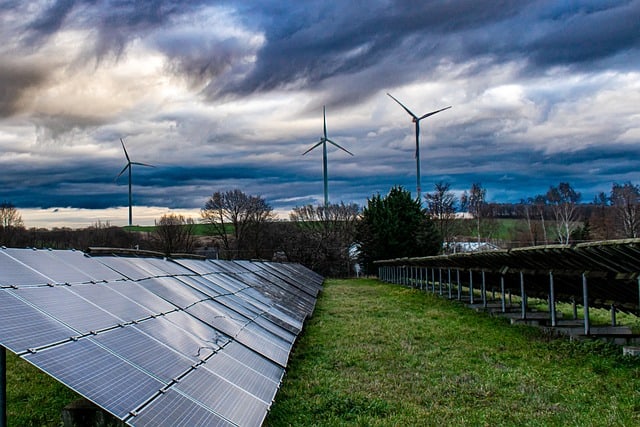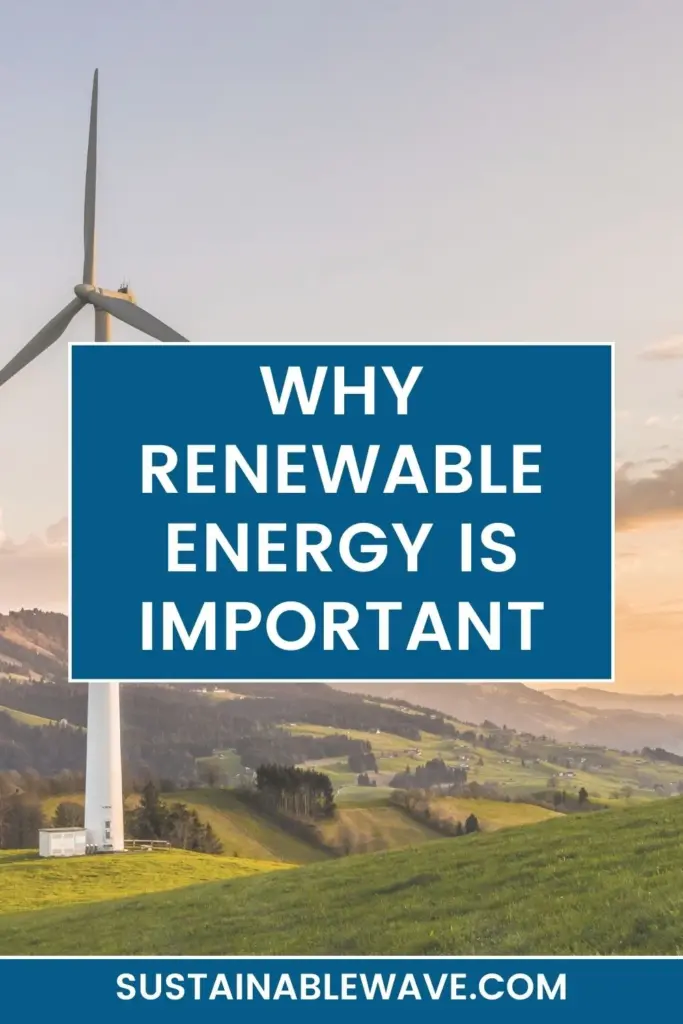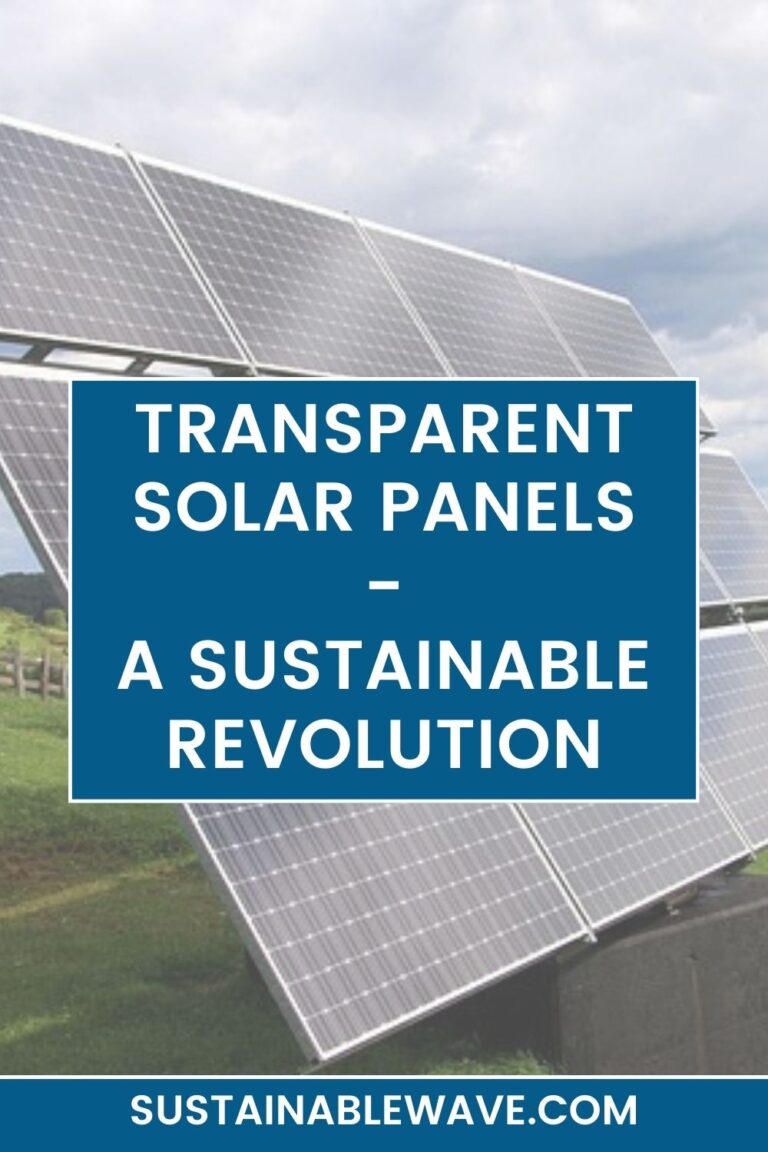The world is undergoing a monumental shift in how it perceives and utilizes energy. As we stand at the crossroads of environmental challenges and technological advancements, the question arises: Why is renewable energy important?
Renewable energy is vital for reducing greenhouse gas emissions, ensuring sustainable power sources, decreasing dependence on finite fossil fuels, promoting economic growth, and safeguarding the environment and health of our future generations.
This guide delves into the myriad reasons that underscore the significance of renewable energy.
Why Is Renewable Energy Important

In today’s rapidly changing world, the importance of renewable energy is becoming increasingly evident. The reasons for its significance are multifaceted:
Environmental Benefits
Our planet is facing an unprecedented environmental crisis. Rising global temperatures, melting ice caps, and extreme weather events are just a few manifestations of climate change. One of the primary culprits behind these changes is the emission of greenhouse gases, primarily from burning fossil fuels.
Renewable energy sources, such as wind, solar, and hydro, produce little to no greenhouse gases. By transitioning to these sources, we can significantly reduce our carbon footprint and mitigate the effects of climate change.
Economic Advantages
Beyond the environment, renewable energy presents substantial economic benefits. As the technology behind solar panels, wind turbines, and other renewable sources advances, the cost of producing energy from these sources decreases. This can lead to cheaper electricity bills for consumers.
Moreover, the renewable energy sector has the potential to create numerous jobs, from manufacturing to installation and maintenance.
Health and Social Benefits
The burning of fossil fuels releases not only carbon dioxide but also other harmful pollutants that can affect air quality. Poor air quality can lead to a host of health problems, including respiratory diseases like asthma. By reducing our reliance on fossil fuels, we can ensure cleaner air and better health outcomes for communities worldwide.
Energy Independence and Security
Over-reliance on fossil fuels, especially in countries that don’t have their own reserves, can lead to energy dependence. This can be a source of geopolitical tension and can make countries vulnerable to price fluctuations. Renewable energy sources, on the other hand, are local, reducing the need for imports and enhancing a nation’s energy security.
Sustainability and Longevity
One of the most compelling reasons to adopt renewable energy is its sustainability. Fossil fuels are finite. They will run out. Renewable sources like the sun and wind are inexhaustible. By investing in renewable energy, we’re ensuring that we have a continuous source of power for generations to come.
The Shift from Fossil Fuels
Understanding the importance of renewable energy also requires understanding the pitfalls of our current reliance on fossil fuels:
- The Decline of Non-renewable Resources: Fossil fuels, by definition, are non-renewable. They took millions of years to form and once used, cannot be replaced. As these resources become scarcer, extracting them becomes more challenging and environmentally damaging. This can lead to higher prices and increased economic volatility.
- Environmental Impact of Fossil Fuels: The environmental consequences of fossil fuel extraction and burning are severe. Oil spills can devastate marine ecosystems. Coal mining can lead to habitat destruction. And the burning of these fuels releases vast amounts of greenhouse gases, driving climate change.
- Economic Strains of Non-renewable Energy: The global economy has, for decades, been intricately linked with the fossil fuel industry. As these resources become scarcer and more expensive to extract, economies that rely heavily on them can suffer. Moreover, geopolitical tensions over oil and gas reserves can lead to conflicts and trade wars.
- Health Impacts: As mentioned earlier, the burning of fossil fuels releases a host of pollutants. These can lead to smog, acid rain, and poor air quality, all of which have direct health impacts. Respiratory diseases, cardiovascular problems, and other health issues can arise from prolonged exposure to polluted air.
Types of Renewable Energy

The realm of renewable energy is vast and diverse, offering a plethora of options that harness nature’s power in various ways such as:
- Solar Energy: Solar energy is one of the most popular and rapidly growing renewable energy sources. Using photovoltaic cells, solar panels capture sunlight and convert it directly into electricity. This technology can be scaled from small rooftop installations for individual homes to vast solar farms that produce power for thousands of households.
- Wind Energy: Wind energy taps into the kinetic energy of moving air to generate electricity. Wind turbines, which can range from small installations to massive offshore wind farms, rotate when the wind blows, turning a generator that produces electricity. The stronger the wind, the more electricity is generated.
- Hydroelectric Energy: This form of energy generation utilizes the movement of water to produce electricity. Typically, dams are built on large rivers. Water released from the reservoir behind the dam flows through turbines, generating electricity. It’s one of the oldest and most established forms of renewable energy.
- Geothermal Energy: Beneath the Earth’s crust, there’s a vast reservoir of heat, which can be harnessed for power. Geothermal plants tap into this heat by drilling deep underground and using the steam that rises to the surface to turn turbines and generate electricity.
- Biomass Energy: Biomass energy involves using organic materials to produce power. This can include burning wood, agricultural waste, or even landfill gas. When these materials are burned, they release energy in the form of heat, which can be used to generate electricity.
Advancements in Renewable Technology
As the world recognizes the importance of transitioning to renewable energy, there have been significant technological advancements aimed at making these sources more efficient, cost-effective, and accessible:
- Innovations in Solar Panels: Modern solar panels are a far cry from their predecessors. Advancements in photovoltaic technology mean that today’s panels are more efficient, more durable, and more affordable. There’s also ongoing research into transparent solar panels that could be integrated into windows and flexible solar materials that could be used in a variety of applications.
- Turbine Technology and Wind Farms: Wind turbine technology has seen significant advancements. Modern turbines are more efficient, can operate at lower wind speeds, and have reduced noise levels. Offshore wind farms, which can harness the more consistent and powerful winds at sea, are also becoming more common.
- Efficient Hydroelectric Dams: While hydroelectric power is an old technology, modern dams are designed to be more efficient and have a reduced environmental impact. There’s also growing interest in “run-of-the-river” installations that don’t require large reservoirs.
- Geothermal Plants and Their Evolution: The technology behind geothermal energy is becoming more advanced, allowing for deeper drilling and access to more powerful heat sources. Enhanced geothermal systems (EGS) are also being developed, which could significantly expand the potential for geothermal energy.
- Biomass Conversion Techniques: Modern biomass plants are more efficient and produce fewer emissions than older models. There’s also significant research into biofuels, which could provide a renewable source of fuel for transportation.
Global Efforts in Promoting Renewable Energy
The push for renewable energy is not just a local or national endeavor; it’s a global movement. Across continents, there’s a concerted effort to transition to cleaner, sustainable energy sources:
- Government Initiatives and Policies: Governments worldwide are recognizing the importance of renewable energy. From subsidies for solar panel installations to tax breaks for wind energy projects, there’s a plethora of policies aimed at promoting renewables. International agreements, like the Paris Agreement, also set targets for reducing carbon emissions, further pushing nations to adopt renewable energy.
- Corporate Commitments to Green Energy: Many multinational corporations are making significant commitments to renewable energy. Tech giants like Google and Apple are investing billions in renewable projects, aiming to offset their carbon footprints. These companies recognize not just the environmental benefits of renewables but also the potential for cost savings in the long run.
- Grassroots Movements and Public Awareness: From local community projects to global environmental movements, there’s a groundswell of support for renewable energy. Public awareness campaigns, educational programs, and grassroots initiatives are playing a crucial role in driving the shift to renewables.
The Future of Renewable Energy
As we look ahead, the future for renewable energy is promising:
- Predictions and Trends: The cost of renewable technologies, especially solar and wind, is expected to continue decreasing, making them even more competitive with fossil fuels. As battery storage technology improves, the intermittent nature of some renewable sources will become less of an issue.
- Challenges and Solutions: While the future is bright, challenges remain. Integrating renewable sources into existing power grids, developing efficient storage solutions, and ensuring a consistent energy supply are all areas that require innovation. However, with rapid technological advancements, solutions are on the horizon.
- Opportunities in the Renewable Sector: The growth of the renewable sector presents numerous opportunities. From job creation in manufacturing, installation, and maintenance to research and development roles, the renewable energy sector is poised to be a significant economic driver in the coming decades.
Final Words on Why Is Renewable Energy Important

The transition to renewable energy is more than just a technological or economic shift; it’s a paradigm shift.
As the realities of climate change become increasingly evident, the move towards renewables is not just beneficial—it’s imperative. The global efforts, technological advancements, and grassroots movements all underscore a collective recognition of this fact.
Embracing renewable energy is not just about securing a sustainable power source; it’s about safeguarding our planet, ensuring a healthier future for subsequent generations, and moving towards a more equitable and resilient global economy.
The shift to renewables is a testament to human ingenuity, collaboration, and our innate desire to protect and preserve our home—Earth.
I’m Thomas, the owner of SustainableWave. Passionately promoting a sustainable planet. With experience in various eco-roles, I’ll share green tips, sustainability hacks, and personal eco-journeys on my blog.






